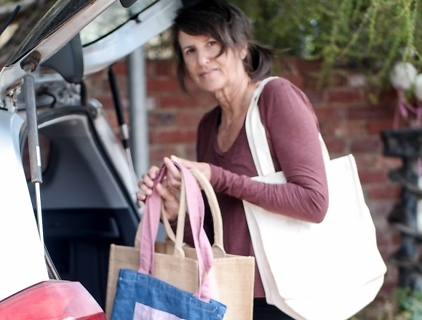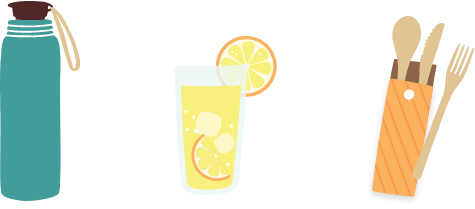I’ve been thinking a lot about the concerns regarding how COVID-19 precautions are threatening the progress we’ve made in reducing single-use plastics.
In the last few months, the pandemic has had a devastating global impact on societies and businesses. Many people have experienced food item shortages, store closures and for many – financial hardship. I consider myself one of the lucky ones. Of course health and safety considerations is the priority around the world right now.
Those of us working on the plastic waste issue have seen this flow onto a wide range of conflicting advice around the use of alternatives to single-use plastic. Around the world we have seen businesses stop accepting customer’s reusable cups for takeaway drinks, restaurants and cafes shifting to takeaway only and some states and countries banning the use of reusables including shopping bags.
A fellow of the Infectious Diseases Society of America, Dr Amesh Adalja, shared his expert advice on the matter in a Huffington Post article on 7 March 2020 saying ‘Minimizing exposure should focus on washing hands, not eliminating the use of a reusable water bottle at work…there are people that are worried about the most esoteric means of transmission, and I think that kind of detracts from the main message here, that this is a respiratory virus: Wash your hands, don’t touch your face, cover your coughs.””
In answer to questions about the safety of buying unpackaged fruit and vegetables and whether we should be washing them more than normal on 3 April 2020 Cathy Moir writes in the CSIROscope blog “It’s not sensible nor practical to wash all the food you bring into your home especially at this point in time when we’re not seeing widespread environmental contamination, nor extensive community transmission of the coronavirus in Australia. However, at this time of heightened concern, the best advice is to wash your hands with soap – before and frequently – when preparing food and handling food packaging. Washing your hands and not touching your face will minimise the risk of getting an infection after touching surfaces or food packaging.”
Of course, the direction of Plastic Free July was also at the forefront of my mind. Should we go ahead with the challenge this year or perhaps change it to Plastic Free November?
Colin Ashton-Graham, who consults on behaviour change for sustainability pointed out that apart from an increase in behaviour changes and waste avoidance our research from last year’s challenge also found an increased positive sense of wellbeing in participants of Plastic Free July. This year we will focus on what people can do in the home to reduce plastic (and other) waste – we can’t always do as much or change everything, but we can do something.
“In this current situation, as communities we’re focused on doing our bit for the common good. Taking small steps to minimize our plastic waste can be a meaningful antidote to the stress and uncertainty we are all experiencing.”
Furthermore, as the majority of people (80%) support action to reduce plastic waste, Plastic Free July could be of service by giving people the opportunity to do something positive at home. Colin says “This has shown as a society that we can make big positive changes quickly, for the right reason.”
Its heartwarming to see this view being adopted by councils in Australia, who in the last month have renewed their commitment to Plastic Free July and signed up again for this year’s challenge. The guidance and practical solutions to protect the local environment, has been adapted to accommodate logistical and safety considerations around COVID-19.
This year the Plastic Free Foundation has also created a new business membership package for companies, offering a toolkit to support companies engage and empower staff members to participate in Plastic Free July and create a greater sense of accomplishment and pride at work.
Whilst staying at home we are seeing a rise of gardening and baking, people being resourceful and making do with what they have. There are so many heartwarming examples of communities connecting and people caring for each other in times of need.
The power of change remains in the hands of every one of us and I would argue that the need for Plastic Free July is, if anything, greater than before.



